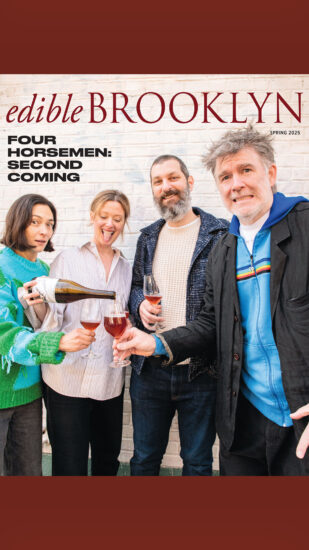
Oysters — so hot right now. Endeavors like the Billion Oyster Project recognize the little bivalves’ power to reshape flagging coastal ecosystems. Also it’s summer, and oysters give New Yorkers a tasty little bite of the ocean — even if they’re landlocked in Gramercy or Clinton Hill.
That’s roughly the twofold thinking behind Oyster Week, celebrating its fourth year in September. It lures people in with delicious oysters to eat, then teaches them about their myriad benefits to our shoreline.
“It can be difficult to get anyone’s attention,” says Kevin Joseph, one of Oyster Week’s co-founders. “You don’t just want to stand in front of a room and preach. But get them talking over a plate of delicious oysters, they’re sold.”
Joseph was inspired by a TED talk proselytizing about the manyfold benefits oysters can have on New York’s rivers and estuaries. It was like a lightning rod—Joseph saw a chance to “get people with money to give a sh*t” about the power of oysters.
“It’s like, you people realize that all the fish you eat rely on coastal estuaries? Oh yeah, and your waterfront real estate is tied in too?” asks Joseph. “Rich people need to learn just how valuable oysters are.”
In keeping with that theme, this year Oyster Week will offer an ultra-posh VIP experience to 100 lucky mollusk-lovers. Dubbed AHOYsters, this brand-new event takes ticket-holders on a mega-yacht journey around New York Harbor. Oysters aplenty will be served, of course, as well as other upscale food and beverage. And for the true elite, around 30 of the attendees will be able to reserve a stateroom on the yacht, sleeping onboard and sharing brunch the next morning.
Oyster Week boasts events for the more plebeian bivalve enthusiast as well. The week kicks off with ever-popular Brooklyn Oyster Riot, held this year at Brooklyn Brewery, then carries on with events like the brand-new Big Gay Oyster Brunch (just like it sounds) and the Japanese-inspired Kaki and Sake.
Check out all the events on the Oyster Week website, and get ready to eat and learn. “We aren’t just connecting people to a food source,” says Joseph. “We’re connecting them to an entire ecosystem.”


